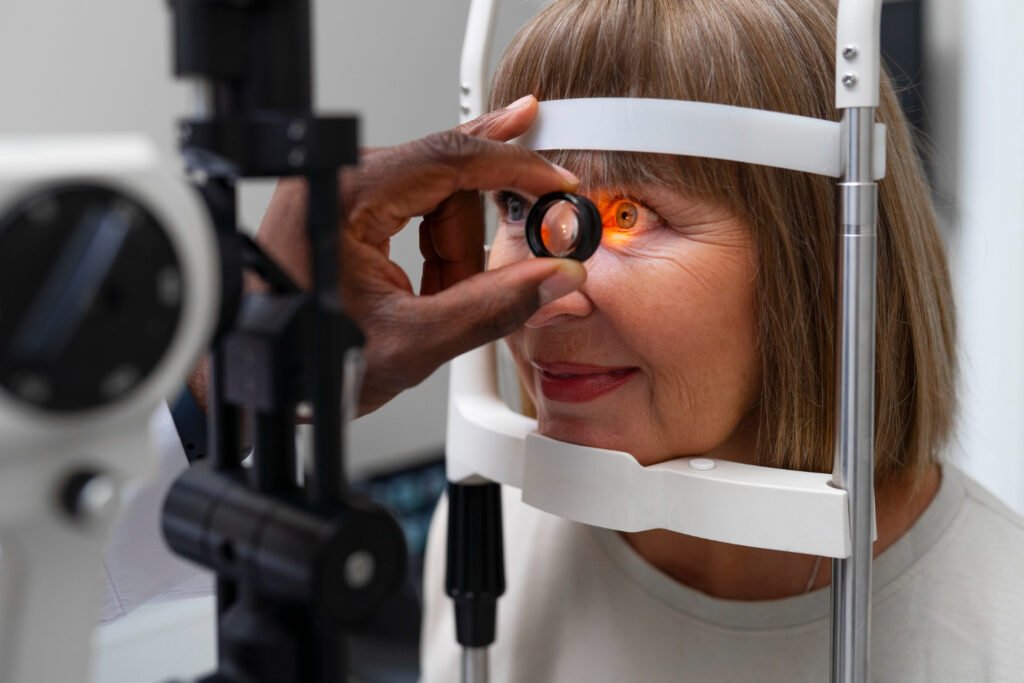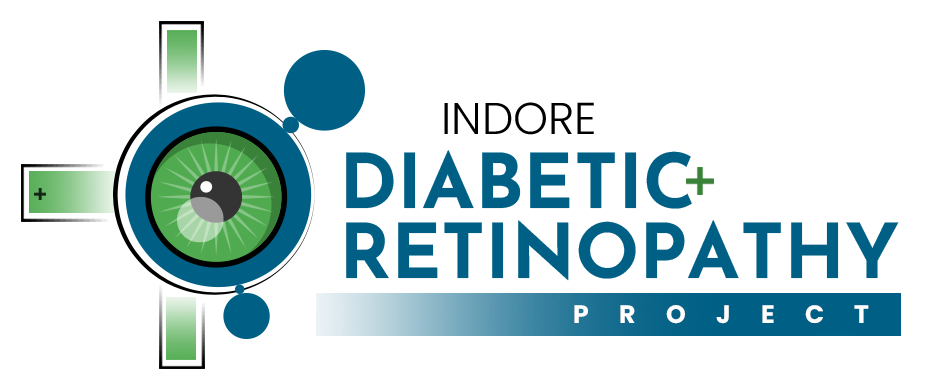Low Vision Aids

Best Eye Surgical Treatment in Indore
Low Vision Aids Hospital in Indore
Low vision aids are one type of device and tool designed to help people with visual impairments or low vision in maximizing their remaining vision and improving their independence. These aids can help people with conditions like glaucoma, macular degeneration, diabetic retinopathy, and other vision-related disorders. Here’s a description of low-vision aids and their different types:
Magnifiers are optical devices that enlarge objects to make them easier to notice. They come in different forms like stand magnifiers, handheld magnifiers, illuminated magnifiers, and electronic magnifiers. Handheld magnifiers can be used for labels, reading books, or menus. Stand magnifiers are designed for hands-free use and are ideal for longer reading sessions.
CCTVs are electronic devices that use a camera and a track to magnify and display printed materials or objects. They are helpful for reading newspapers, books, or documents, and for performing tasks like writing, sewing, or working on crafts.
These aids use technology to help with reading and accessing printed material. They can include devices like portable text-to-speech readers that convert written text into spoken words, allowing individuals to listen to books or documents.
In addition to specific low-vision aids, there are different modern technologies available that can be beneficial for individuals with low vision. These include voice recognition software for hands-free computer operation, screen magnification software, braille displays for tactile reading, and smartphone applications designed for accessibility.
Enhancing lighting conditions and improving contrast can significantly boost visibility for people with low vision. This can involve using task-specific lighting like desk lamps with adjustable brightness or increasing contrast by using bold, high-contrast fonts and materials. It is important to note that low-vision aids should be defined and customized by a low-vision specialist or an optometrist experienced in low-vision rehabilitation. These professionals can assess an individual’s visual requirements and recommend the most suitable aids to optimize their remaining vision and improve their quality of life. Regular follow-up visits and adjustments may be necessary as visual needs can change over time.
In short, low vision aids encompass a wide range of devices and technologies that assist individuals with visual impairments in making the most of their remaining vision. These aids can help people perform daily activities, navigate their environment, and keep their independence. By utilizing proper low-vision aids and working with healthcare professionals, people with low vision can improve their visual abilities and engage in different factors of life more effectively.
Low Vision Aids :
Low vision is a condition that cannot be fully corrected with standard eyeglasses, contact lenses, or surgical intervention. At Retina Specialty Hospital, we offer a comprehensive range of low vision aids to help individuals with various stages of vision loss regain their independence and improve their quality of life.
Our selection of low vision aids includes devices such as high-powered magnifiers, electronic magnifiers, and portable telescopic systems that can assist with everyday tasks like reading, writing, and recognizing faces.
We understand that access to affordable low vision aids is crucial. That’s why we offer a variety of cost-effective solutions to meet the needs of our patients, ensuring that everyone has the opportunity to benefit from these life-changing technologies.
For individuals with more advanced stages of vision loss, we provide cutting-edge electronic reading aids, closed-circuit television systems, and other innovative assistive technologies to help them regain their independence and participate in daily activities.
At Retina Specialty Hospital, we believe in a holistic approach to eye care. Our low vision specialists work closely with each patient to design personalized vision rehabilitation programs that address their unique needs and goals.
These programs may include:
– Evaluation and assessment of visual function
– Prescription and training on low vision aids
– Strategies for maximizing remaining vision
– Lifestyle adjustments and adaptive techniques
– Referrals to other healthcare professionals as needed
Stay Connected with Retina Specialty Hospital
We are committed to providing our patients with the latest information and resources to help them manage their vision health. Stay connected with us through our social media channels and website to stay up-to-date on our services, educational materials, and community events.
The most common types of low vision aids include magnifiers, telescopic devices, closed-circuit television systems, and electronic reading aids. These devices can help individuals with various stages of vision loss by enhancing contrast, enlarging text and images, and providing better illumination.
Selecting the appropriate low vision aid depends on several factors, including the individual's specific visual needs, the severity of their vision loss, and their lifestyle and preferences. Our low vision specialists at Retina Specialty Hospital can help you understand your options and recommend the best solution for your unique needs.
Low vision aids can significantly improve an individual's ability to perform daily tasks, read, write, and engage in hobbies and social activities. They can also enhance independence, reduce the risk of accidents, and improve overall quality of life for those with vision impairments.
Yes, our low vision rehabilitation programs include comprehensive training on the proper use and maintenance of low vision aids. We'll work with you to ensure you feel confident and comfortable using your new device to its full potential.
Absolutely. Low vision aids are designed to enhance your ability to perform daily activities, such as reading, writing, cooking, and navigating your surroundings. By using the right low vision aid, you can regain your independence and improve your quality of life.
Our low vision specialists will work closely with you to assess your specific visual needs and recommend the most appropriate low vision aid. We consider factors like the severity of your vision loss, your lifestyle, and your personal preferences to ensure you receive the best solution.









